The Forbidden City was the Chinese Imperial Palace from the Ming dynasty to the end of the Qing dynasty—the years 1420 to 1912. It is located in the centre of Beijing, China. It was forbidden to enter without special permission of the emperor, hence its name ‘The Forbidden City’. Anybody who tried to enter uninvited was executed..! It is the world’s largest palace complex and covers 74 hectares.
You enter from Tiananmen Square through the Meridien Gate which in former times was reserved for the use of the Emperor.
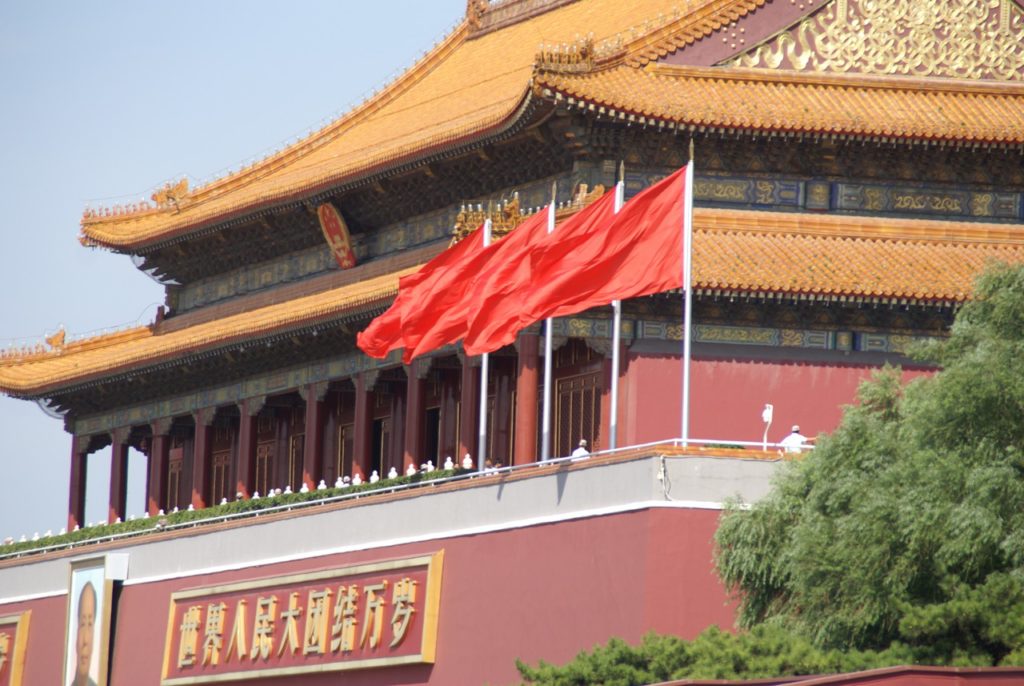
Once inside you are in an enormous courtyard, which could hold an imperial audience of 100,000 people. Across the courtyard is the Gate of Supreme Harmony which takes you into the heart of the Forbidden City.
As you enter through the Gate of Supreme Harmony, raised on three marble terraces are the Three Great Halls.
The Hall of Supreme Harmony used for ceremonial occasions, such as the Emperor’s birthday, coronations and the nominations of military leaders.
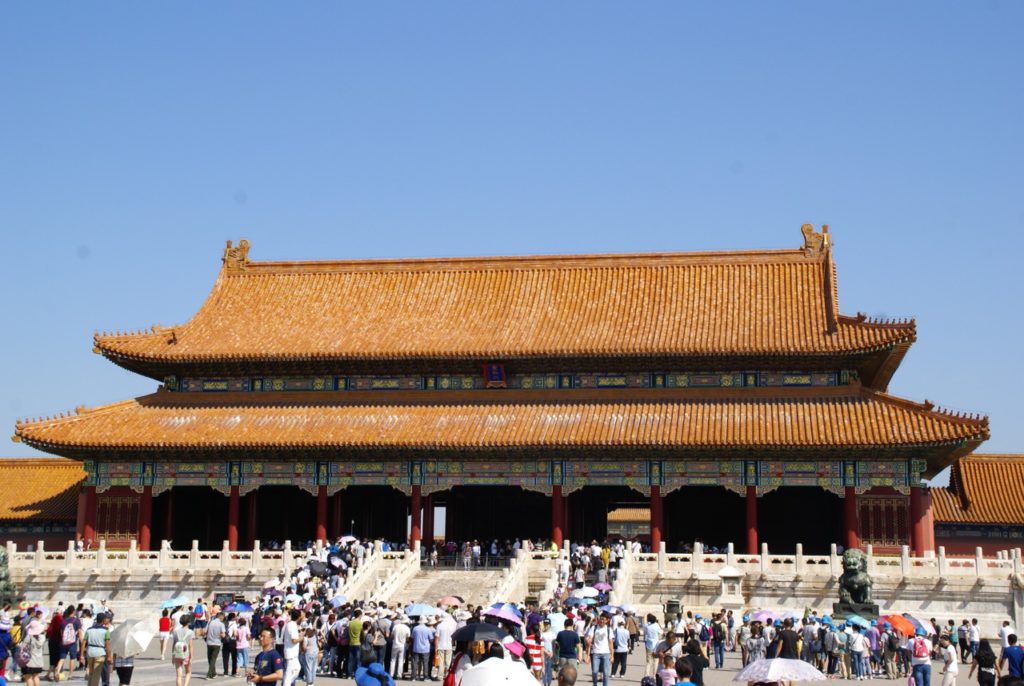
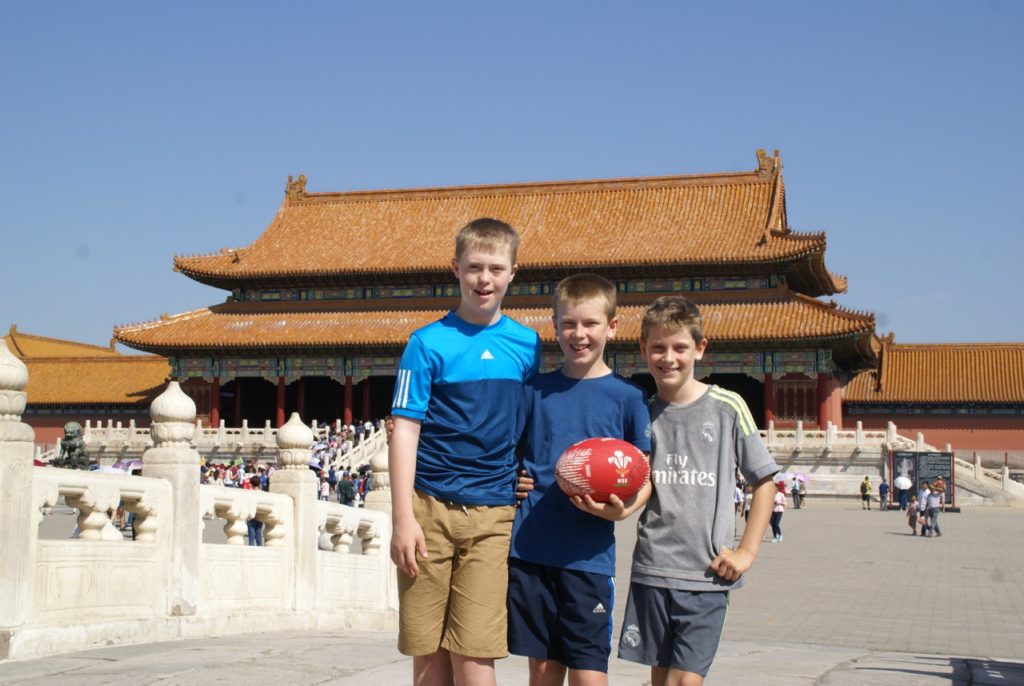
Inside the Hall is the Dragon Throne from which the Emperor would preside over his subjects. The entire court had to touch the floor with their foreheads nine times in the presence of the Emperor, the custom known as kowtowing.
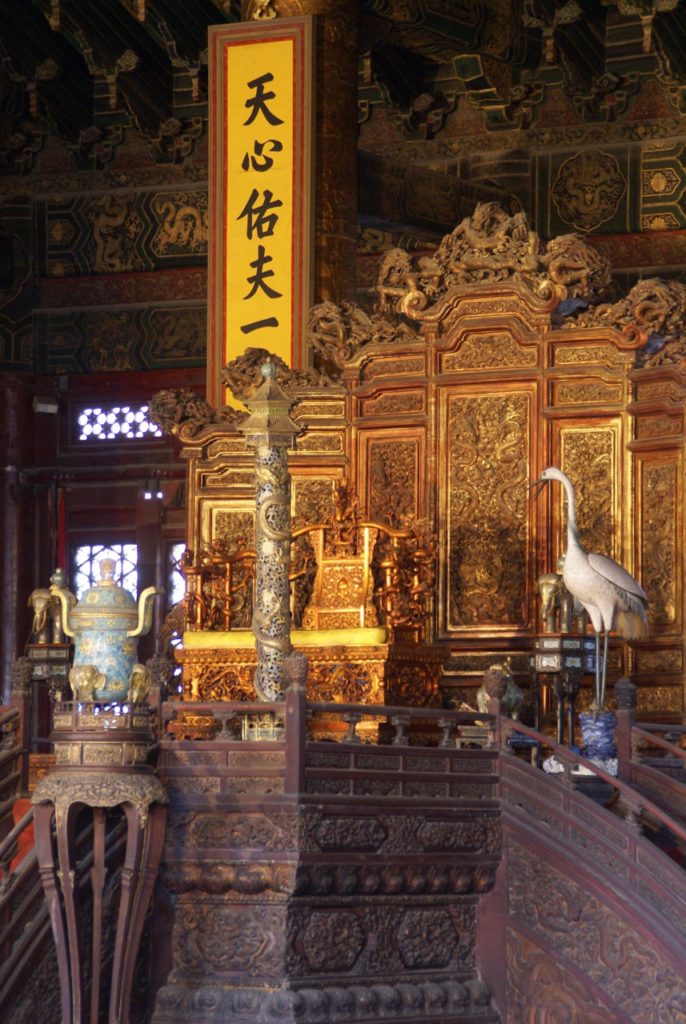
The Hall of Middle Harmony was the Emperor’s transit lounge, where he would make last minute preparations, rehearse speeches and receive close ministers.
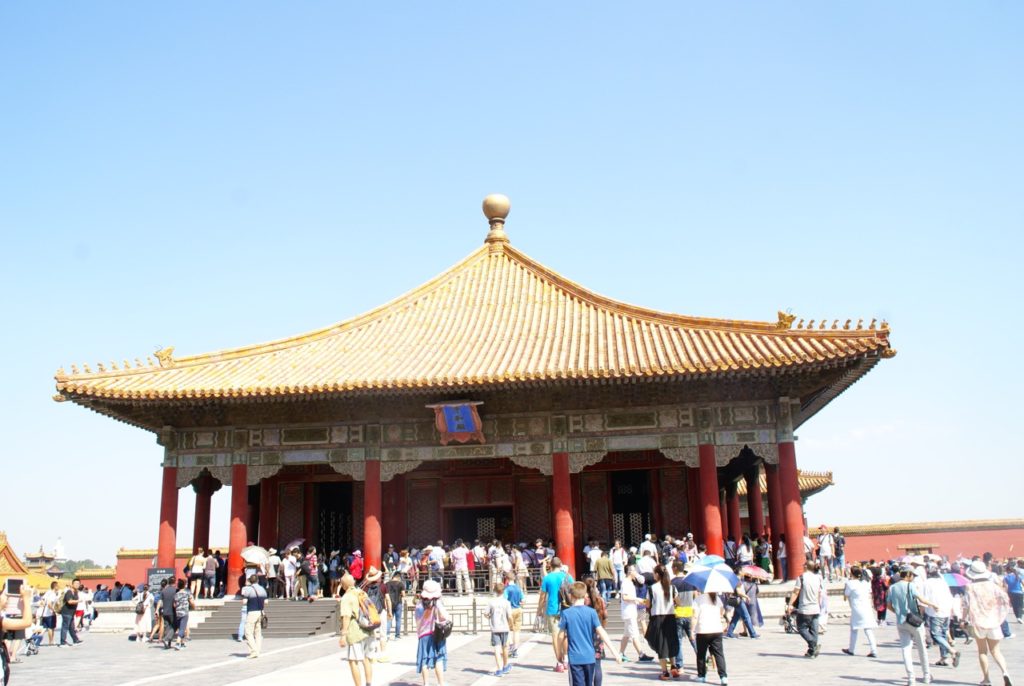
And thirdly the Hall of Preserving Harmony which was used for banquets.
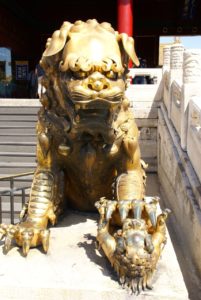
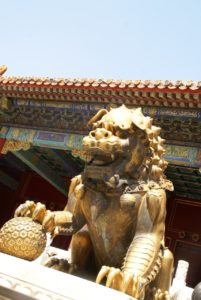
Pairs of guardian lions guard important buildings. The male has a paw on a globe to represent the Emperor’s power over the world. The female has her paw on a baby lion representing the Emperor’s fertility.
On the roofs of many buildings are a series of animals known as roof guardians. An imperial dragon is at the tail of the procession, led by a figure riding a phoenix, followed by a number of mythical beasts. The more beasts, the more important the building.
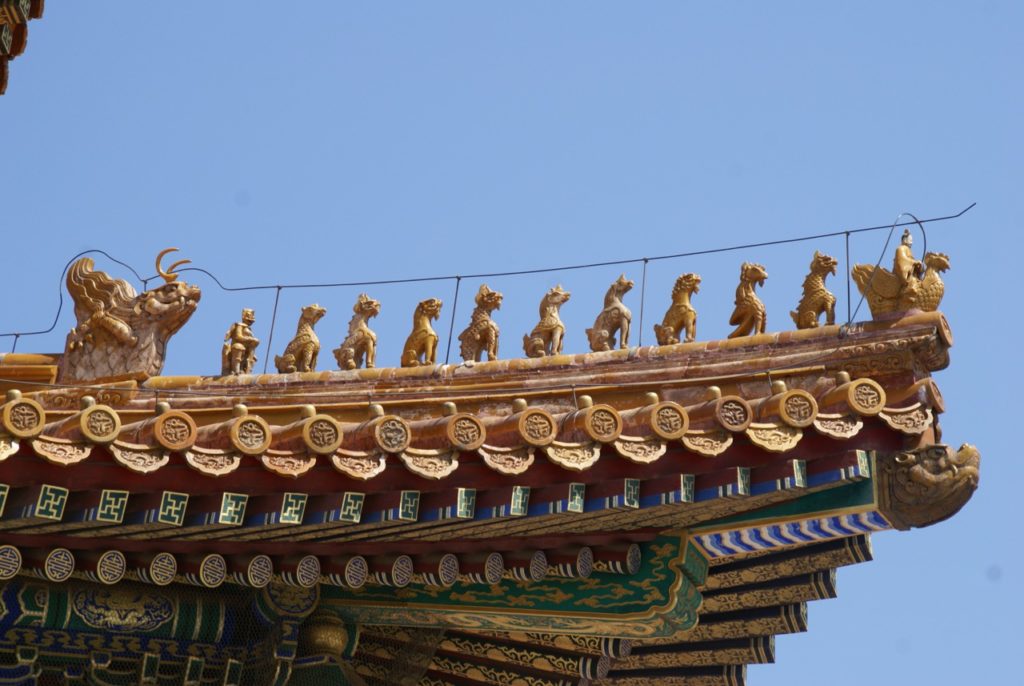
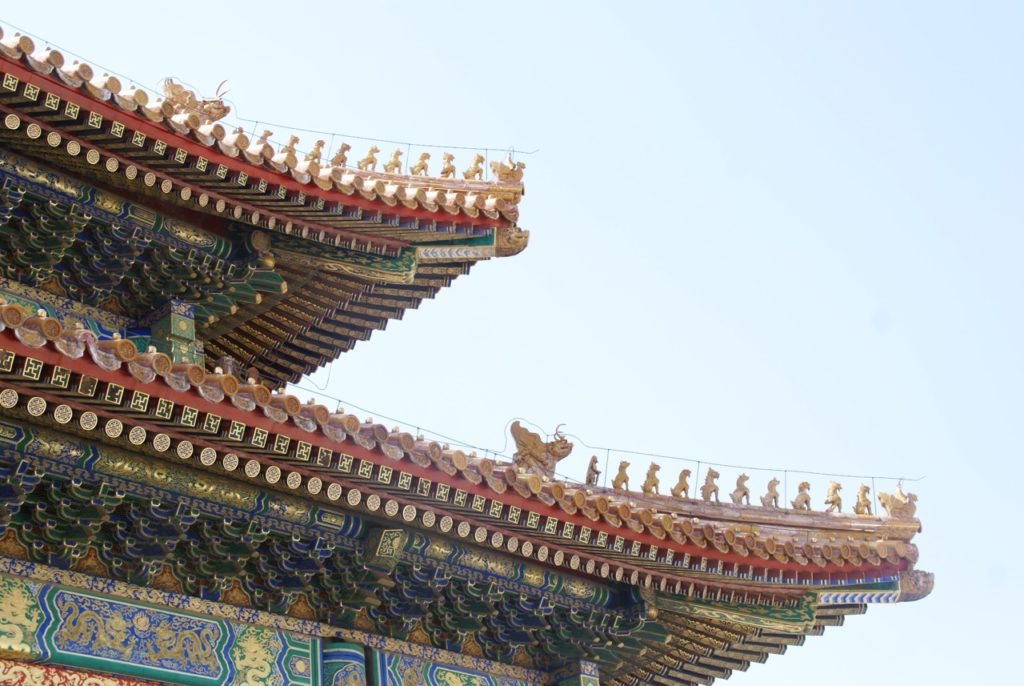
There are over 300 copper and brass water vats throughout the palace. These were used for fighting fires and in winter time would be covered with thick material to stop them freezing.
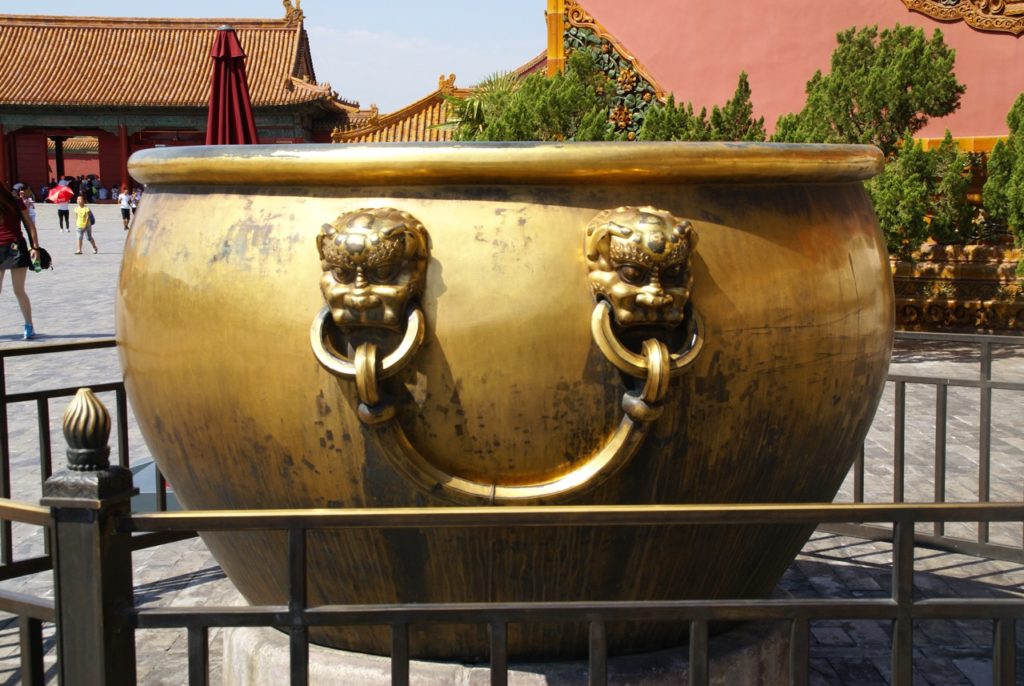
More than 1000 dragon head spouts encircle the raised marble platforms at the centre of the Forbidden City – these were and still are part of the drainage system.
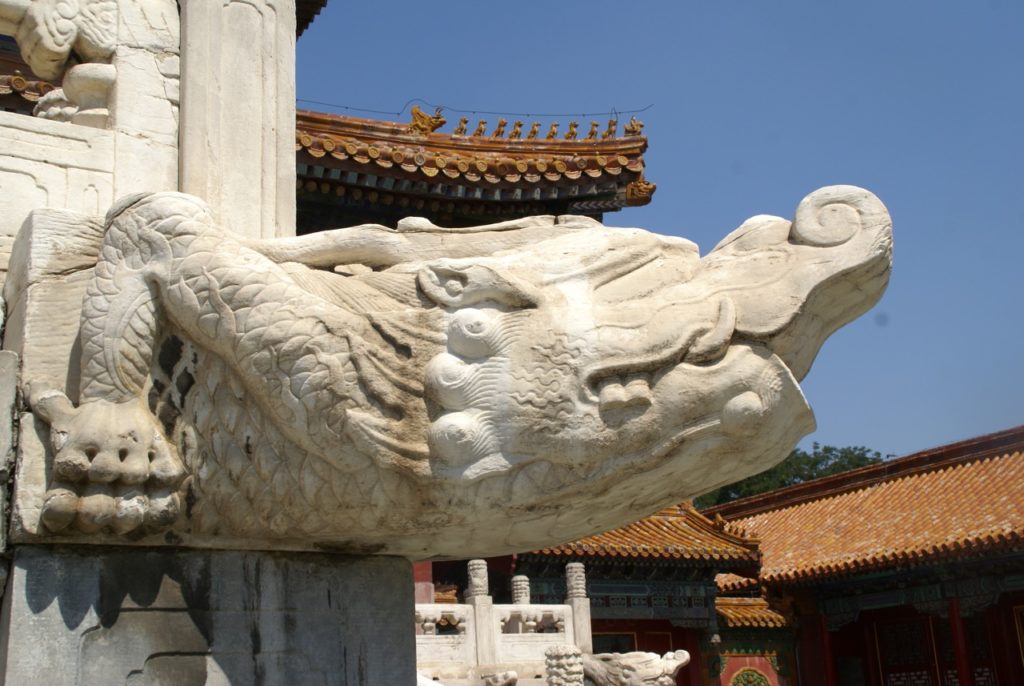
From here we veered right to the Ceramics Gallery in the Hall of Literacy Glory, an exhibition of beautiful porcelain glazed pots from the various dynasties.
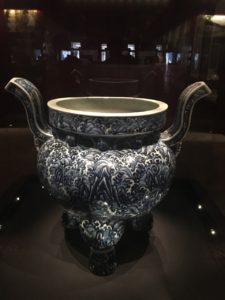
The Clock Exhibition Hall was next which houses many huge intricate clocks made throughout the 17th-20th Centuries, both in China and Europe.
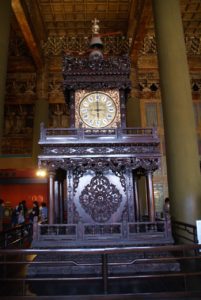
We continued down the eastern side of the Forbidden City through the many halls and courtyards of the Complete Palace of Peace and Longevity. This is where the Empress Dowager and the various concubines lived during the Ming Dynasty. It was much quieter, with fewer people, and lovely to wander through this area without the crowds, many of whom just seem to pass through the main central halls. We saw the glazed Nine Dragon Screen, one of only three left in the whole of China, and the Pavilion of Cheerful Melodies, a three-storey wooden opera house.
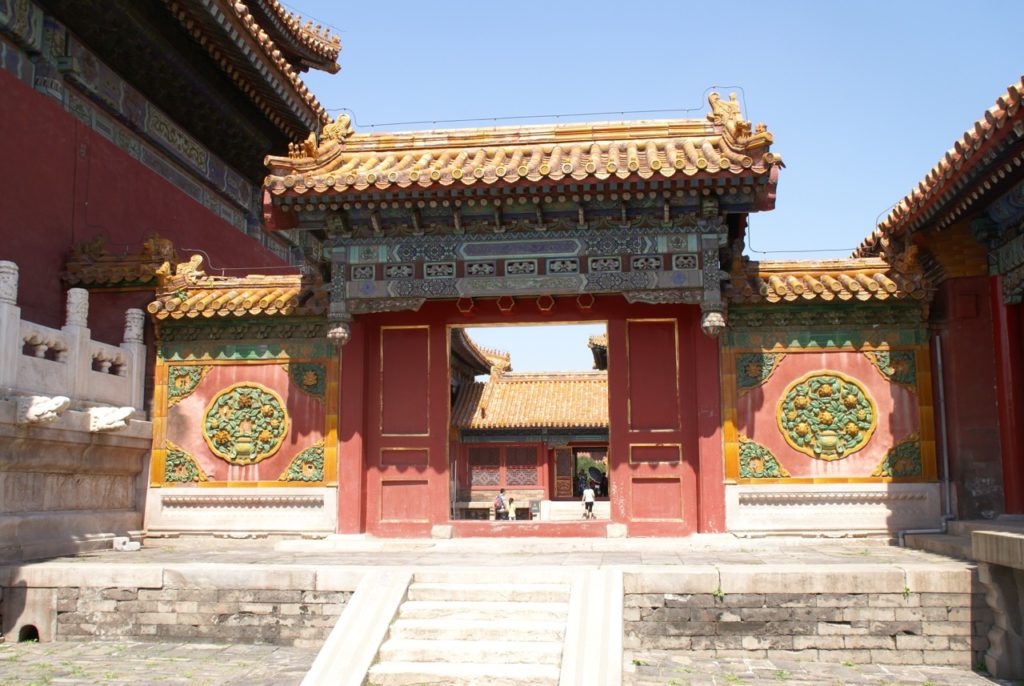
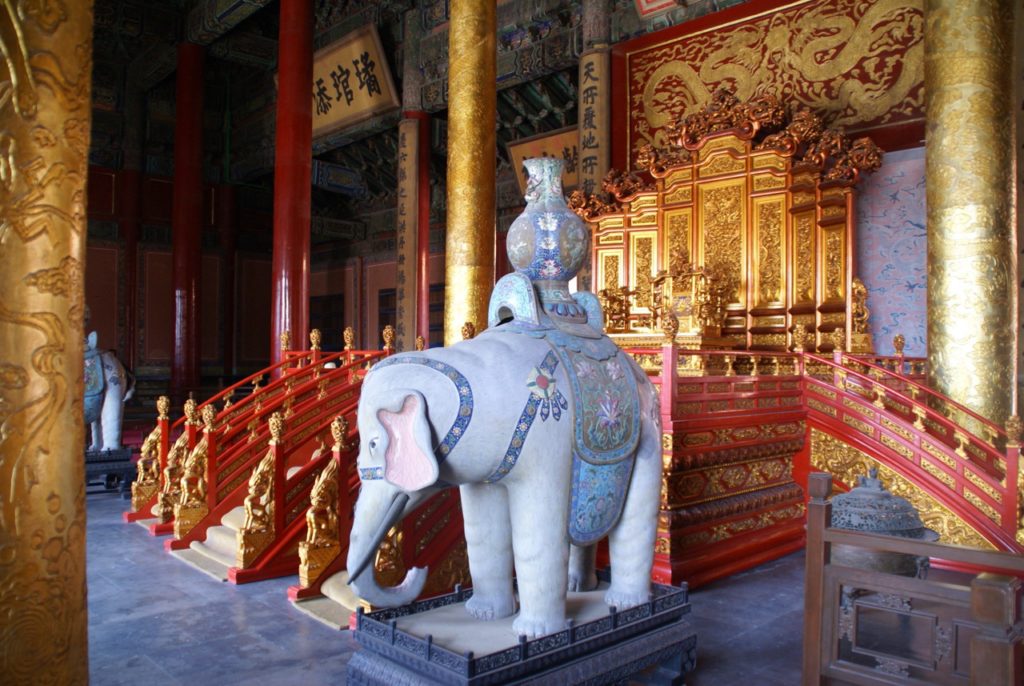
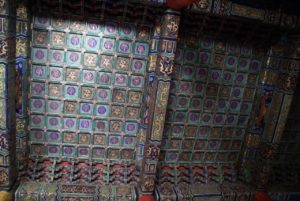
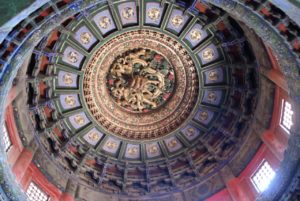
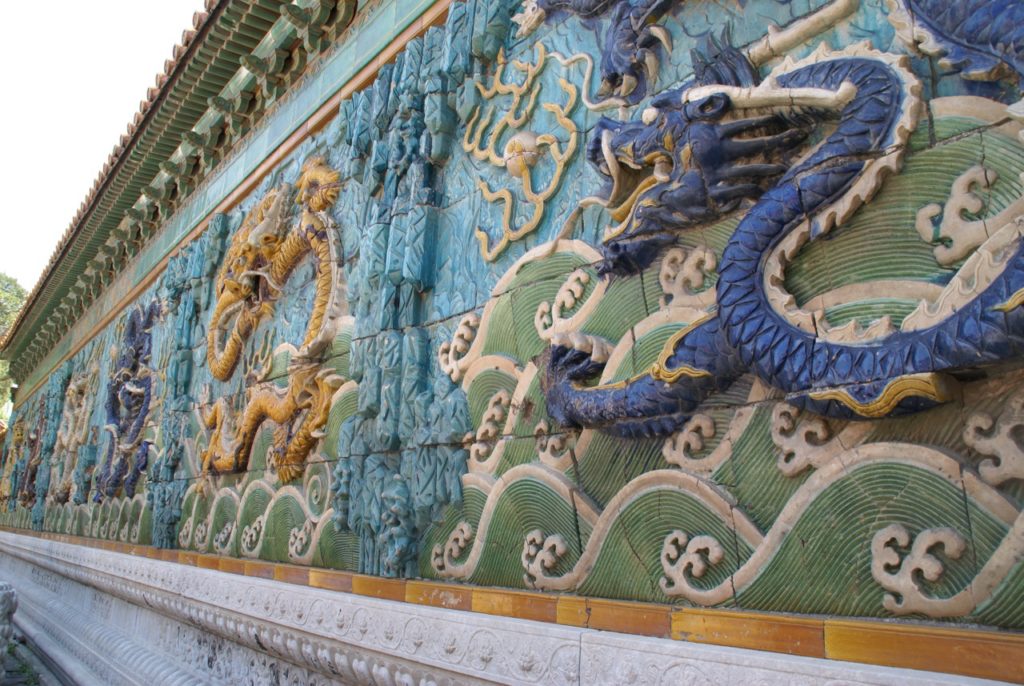
The basic configuration of the Three Great Halls is echoed by the next three buildings. Smaller in scale than the Three Great Halls but actually more important in terms of real power.
The Palace of Heavenly Purity, the residence of Ming and early Qing Emperor’s and later an audience hall for receiving foreign envoys and high officials.
The Hall of Union which contains a water clock made in 1745.
The Palace of Earthly Tranquility, the imperial couple’s bridal chamber and the centre of operations for the place harem.
Lastly, the Imperial Garden, a classic Chinese garden with rockeries, walkways, pavilions and ancient cypress trees, a stunning end to a magnificent place complex. A beautiful pair of bronze elephants can be found within the garden.
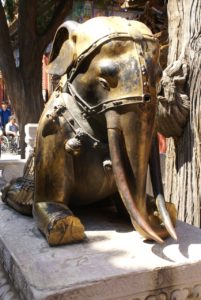
The Forbidden City is a must if visiting Beijing. 80,000 tickets are issued everyday and during the summer season these can all be gone early in the morning. Our hotel reserved our tickets the day before to save us getting up early and queuing and we collected the tickets at the ticket office.
After a trip to the Forbidden City it is worth climbing the hill at the northern end, Jingshan Park, for spectacular views over the whole of the Forbidden City.
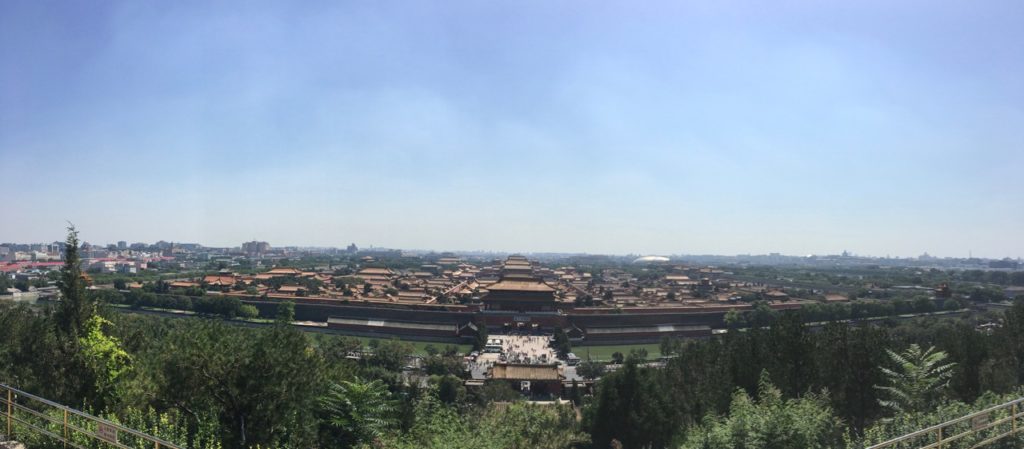
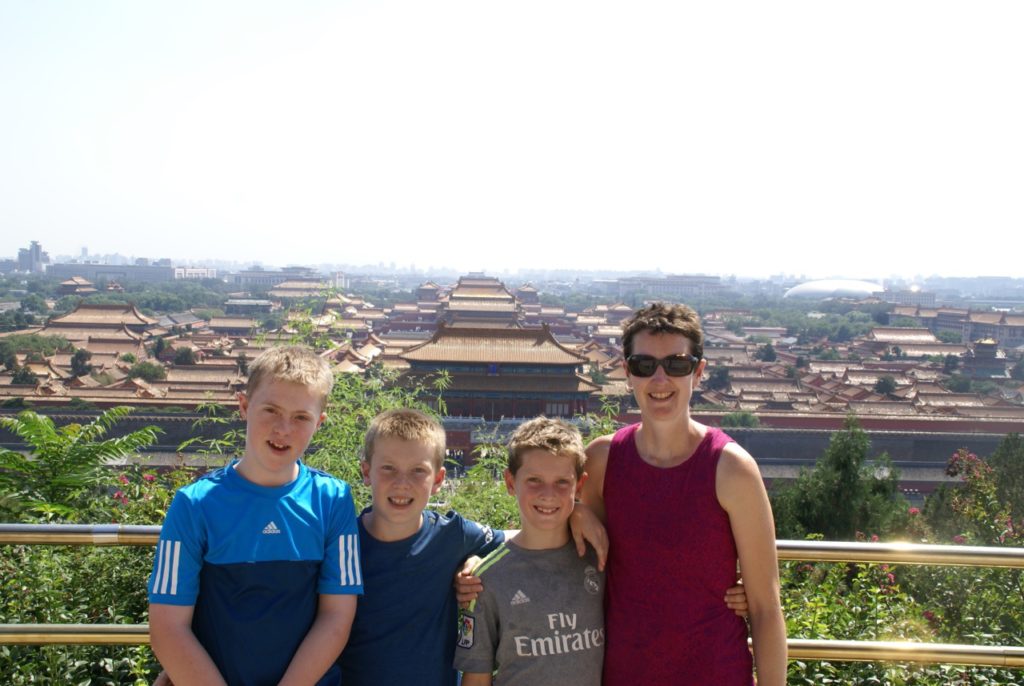

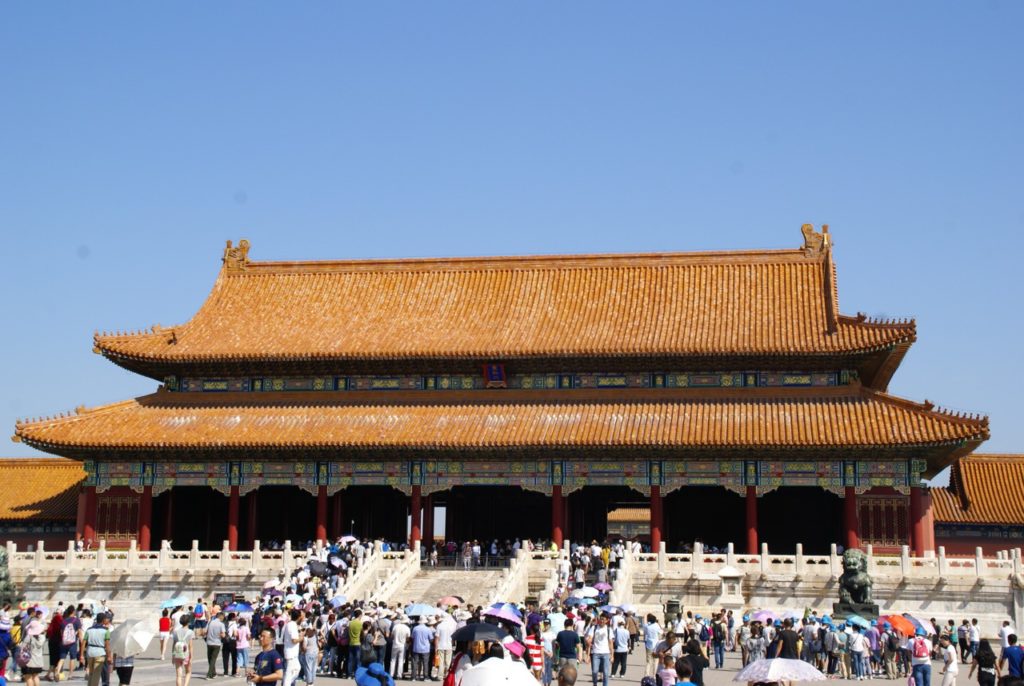

6 Comments.
Fascinating, thank you. Haircuts next?
Haircuts around the world…?
It all looks amazing. We are all very envious. Back in school here. Enjoy your next stop. We look forward to the pictures. Love to you all xx
Hope start back to school went well. Boys are definitely missing their friends and talk a lot about school although having a great time too. Fly to Myanmar tomorrow.
Your blog is bringing memories of my trip through China flooding back. Wish I’d kept more detailed notes at the time. So much easier these days with digital cameras and Internet. Loving your posts. What an adventure you’re having!!
We loved China – an amazing country with so much to offer. Would have loved to do Tibet too…will have to go again..! Really enjoying writing the blog too – hope will provide us all with memories in years to come. In Singapore now but travelling again tomorrow as we fly to Myanmar – more adventures await.